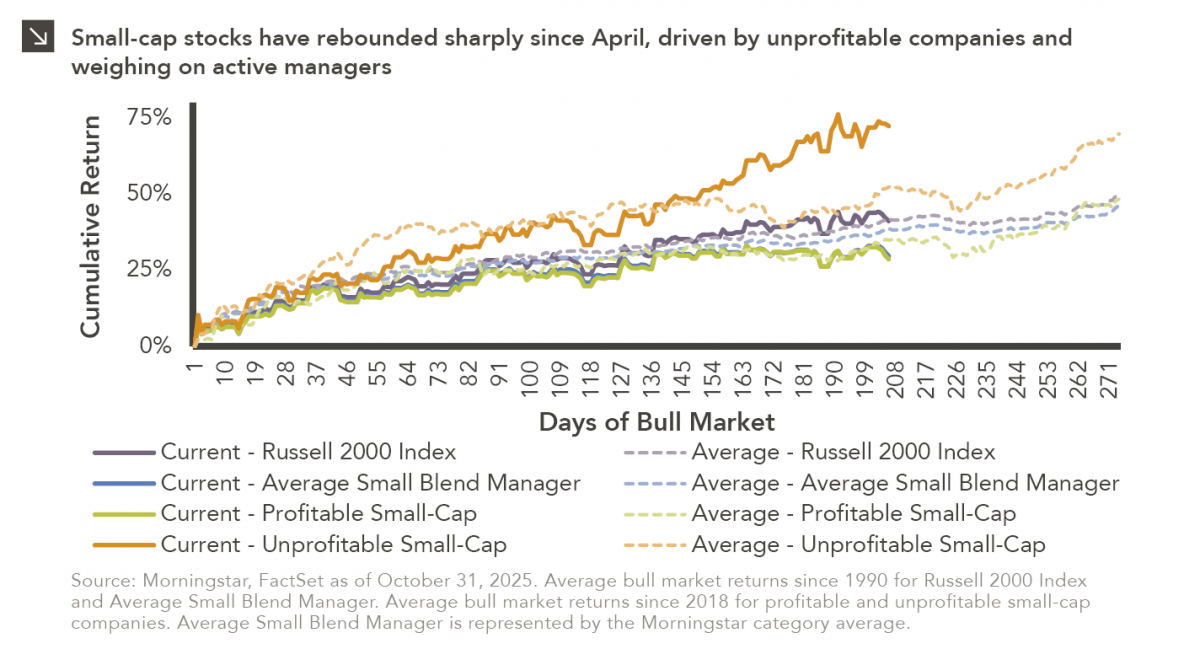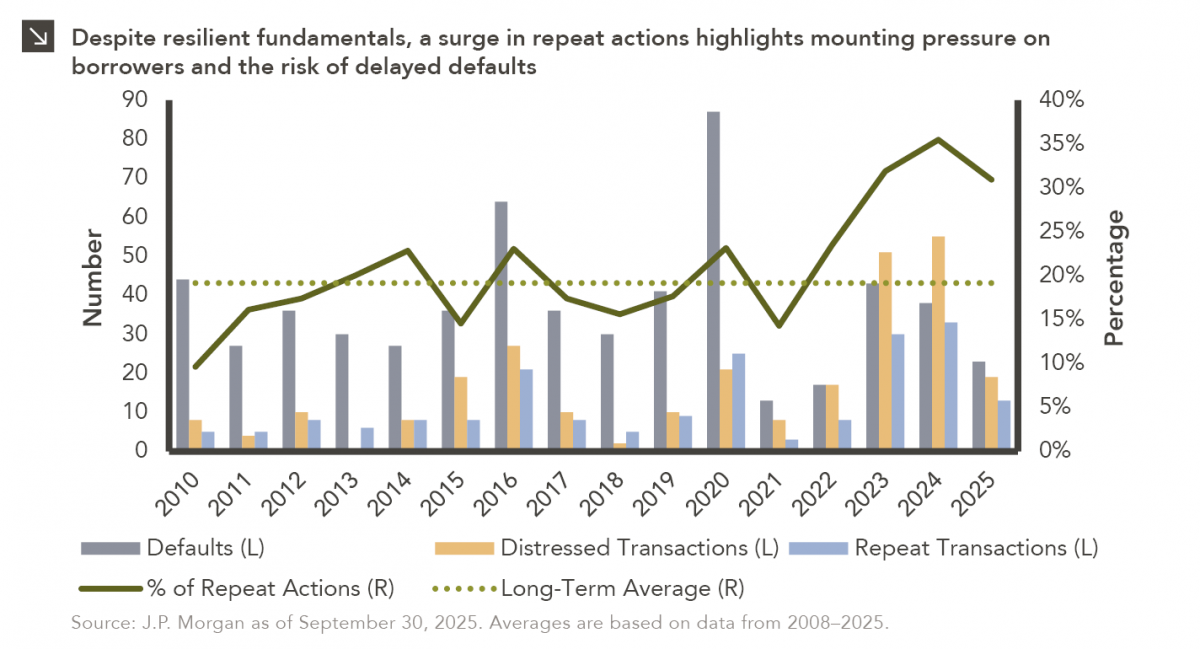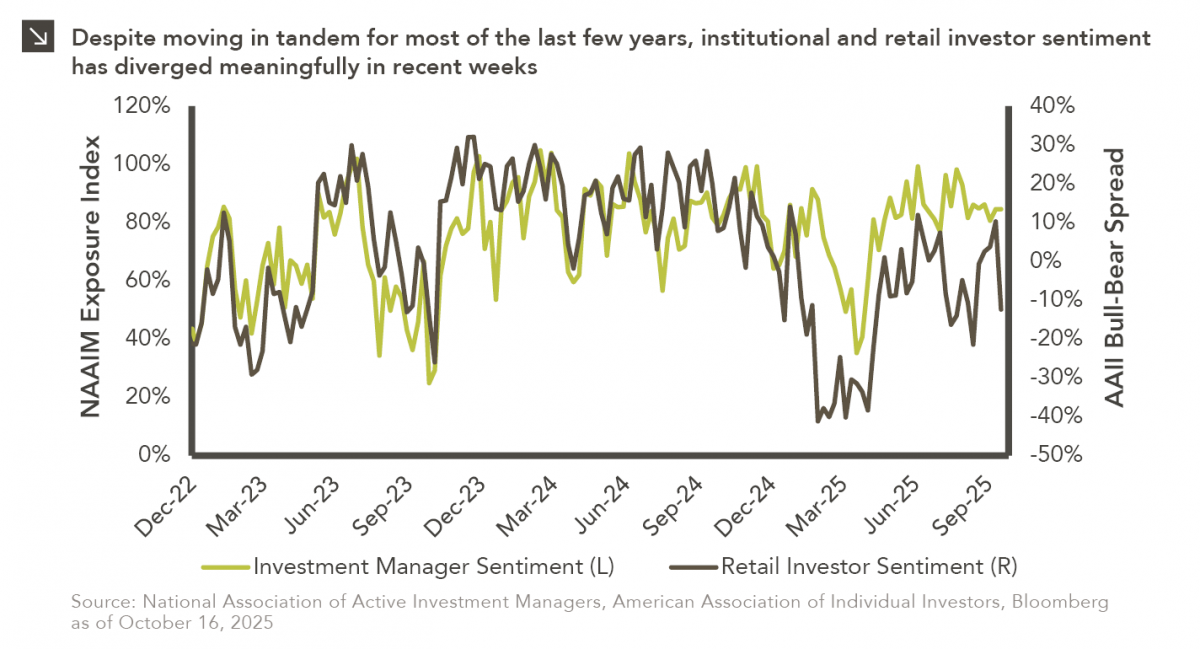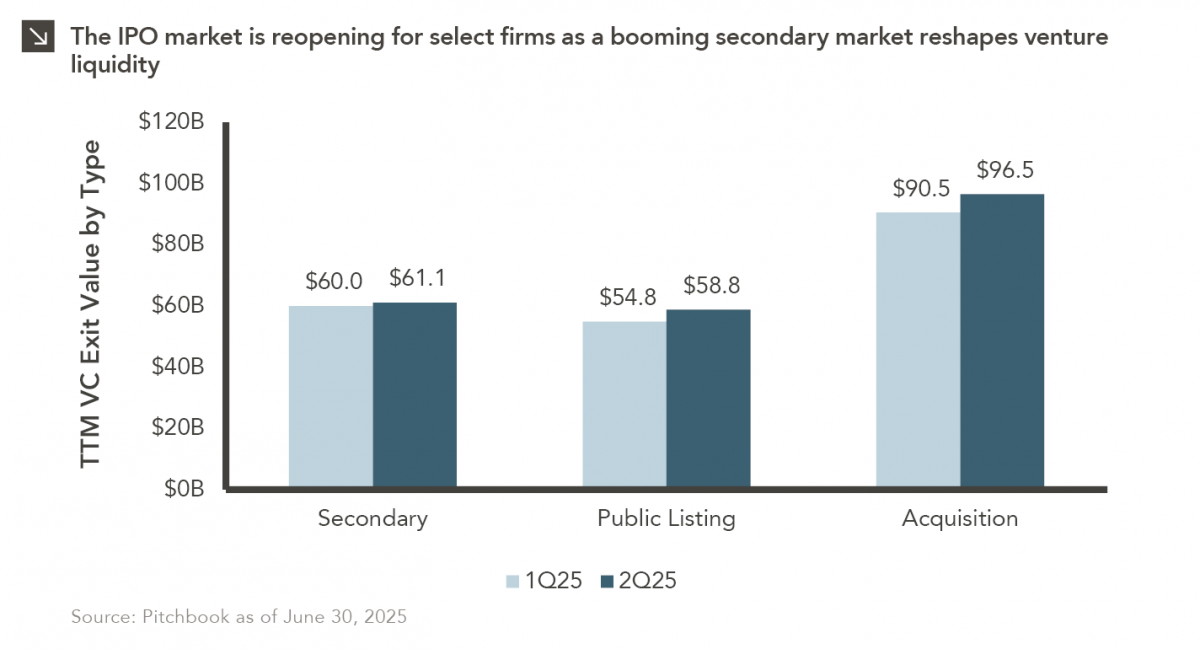11.03.2025
No Small Headwind for Small-Cap Managers
Small-cap equities are in a prolonged period of underperformance relative to large-cap stocks, but this trend has shown early signs…


This week’s chart shows asset flows between active and passively managed mutual funds and exchange traded funds (ETFs) in U.S. equities. Over the last eleven calendar years, active strategies experienced cumulative outflows totaling $864 billion, while passive strategies saw inflows of nearly $460 billion.
Strong passive flows such as this can potentially have a negative effect on active performance since stocks are less able to differentiate themselves on fundamental factors. When passive strategies receive significant inflows, all stocks in an index are purchased and receive price support. This can have a material impact on stocks with limited trading volume, thus this is more of an issue for small-cap versus mid or large-cap. Within small-cap, passive inflows in 2016 totaled $7.6 billion while active outflows totaled $18.5 billion. The Russell 2000 Value posted the strongest return within the nine U.S. equity style boxes during 2016, while active strategy outperformance in small-cap value was especially challenged relative to the other style boxes.
With passive U.S. equity indices ranking in the top half or better of their respective peer groups in recent years, active strategies have largely lagged behind their benchmarks. This performance lag is a primary reason why asset flows have shifted to passive strategies. Since a passive strategy essentially owns the market, passive allocations have fully participated in the current bull market, while active strategy performance depends on how a particular fund’s bets fared relative to its benchmark. Passive investing represents a low-cost means of gaining exposure to an asset class and fees are often a small fraction of the fees paid for active management. With valuations at or close to all-time highs, active manager performance will be closely monitored in 2017 to see if their higher fees are justified in this current market environment.
The opinions expressed herein are those of Marquette Associates, Inc. (“Marquette”), and are subject to change without notice. This material is not financial advice or an offer to purchase or sell any product. Marquette reserves the right to modify its current investment strategies and techniques based on changing market dynamics or client needs.

11.03.2025
Small-cap equities are in a prolonged period of underperformance relative to large-cap stocks, but this trend has shown early signs…

10.27.2025
To paraphrase a quote from former President George W. Bush: “Fool me once, shame on… shame on you. Fool me…

10.22.2025
This video is a recording of a live webinar held October 22 by Marquette’s research team analyzing the third quarter…
10.22.2025
I spent the past weekend at my alma mater to watch them play their biggest rival. Football weekends there are…

10.20.2025
This week’s chart compares institutional and retail investor sentiment using two established indicators. Institutional sentiment is represented by the National…

10.13.2025
After a three-year drought, the IPO market is stirring again… but only for a select few. Just 18 companies have…
Research alerts keep you updated on our latest research publications. Simply enter your contact information, choose the research alerts you would like to receive and click Subscribe. Alerts will be sent as research is published.
We respect your privacy. We will never share or sell your information.
If you have questions or need further information, please contact us directly and we will respond to your inquiry within 24 hours.
Contact Us >